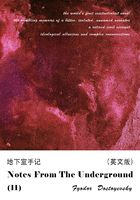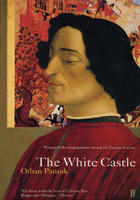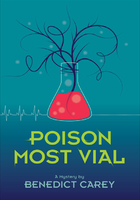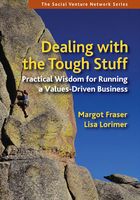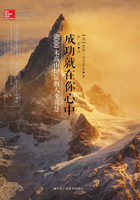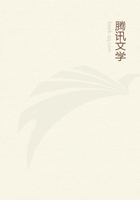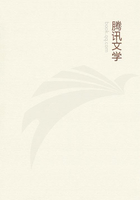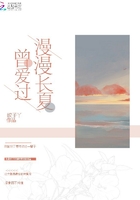But do not speak aloud or raise a cry:
Then come away, and do not turn again.
If you will do all this, I shall take heart
And stand up for you; otherwise, O stranger,
I should be seriously afraid for you.
SOPHOCLES. OEDIPUS AT COLONUS
Twenty-two hours later by my watch and two days later by the calendar, my airliner crossed the rim of the island continent. Flying north-west to south-east, our day had been telescoped: as we crossed the coast of the biggest island in the world, not a pin-point of light pierced our second night. Unseen around us and above us were threatening pinnacles of cloud, spun off the monsoon winds. Inside our aluminium and plastic cocoon, the passengers lay like larvae, twitching slightly. Those young enough or drunk enough to find sleep lay with their mouths open, like victims of some poison gas. The kerosene fumes we were all obliged to breathe were being enriched with the effluvium created by a party of rich Italians who, unable to stop smoking, stop talking or stop running around, spread their stink as effectively as possible, to the toilets, the corridors and the galleys, in concerted defiance of the IATA regulations. In its curtained alcove, the Italian cabin crew was concentrating on growing its own cancers.
By holding my pillow up to the porthole I could see out into the Australian night, where some titanic electrical commotion was brewing. Far to the west, great bursts of sulphur-yellow, blood-red and a sort of fizzing purply-orange light would boil up out of the black velvet and spill on to the horizon, backlighting tiers of cloud hanging in great slabs. A trickle of magnesium white would slip down them and bounce to earth, then all would vanish and the blackout would be seamless once more.
The storm system was hundreds of miles across. The 747 scuttled down its eastern flank as the horizon turned gun-metal grey, then indigo, then RAF blue and suddenly the cabin crew laid down their cigarettes to serve us a breakfast just as terrible as the other five meals I had already looked at. My appetite was not improved by a certain nervousness to do with something in my luggage.
My intention had been to give all my family presents of a distinctly Italian character. Mother was to have a bottle of Nocino liqueur and a real sponge, my sister-in-law Italian table linen, and for my sister, who has a rich husband, two elegant houses and is moderately interested in cooking, I had found two large white truffles. The vendor had packed them most carefully in a little aluminium pan filled with rice to absorb the odour, sealed it with clingfilm, finished it off in the shop's exclusive paper and tied it with monogrammed ribbon. I had tucked the elegant package among my underwear, with the nefarious intention of not declaring it.
As I gulped my grey coffee, a Voice intoned on the tannoy in seven languages: 'Australia is an island, free of many of the pestilences that plague other lands, and insists on staying that way. Any fresh foodstuffs or vegetable material must be declared.' The Italian pilot sitting next to me warned that not only would my truffles be confiscated if the customs officers found them, I could be fined some enormous amount of money and even sent to prison. Italian flights are carefully inspected, for a single salami could introduce foot and mouth disease or anthrax or rinderpest. God knows what grim organisms infest a truffle. Rabid snot from the truffle hound or vesicular fever from a truffle pig. By the time I got to customs control I was ready to torch the truffles myself.
The cadaverous Friulian peasant in front of me was encumbered with two phony-looking mandolins. The officers smelt them, tapped them, rattled them, and for a second looked like smashing them, to see if anything was inside.
My customs officer was Vietnamese; I had chosen him because the Vietnamese, unlike the Australians, have one of the most sophisticated cuisines in the world. I unwrapped my precious parcel and exhibited two very dodgy-looking grey blobs, charmless as turtle testicles. The smell filled the entire customs hall. The supervisor was called. He poked at the truffles with the tip of his pencil. 'No, no, no,' he said, with the kind of extreme patience one shows to a child. He flicked a grain of rice on to a sheet of newspaper. 'You can't have that.' He rolled the truffles over with his pencil and flicked off every grain of rice, and he poured the rice out of the pans on to his piece of paper.
'You eat these, do you?' he asked, rolling the truffles with his pencil. 'All of them?'
I gave a quick lecture on the use of the white truffle in Italian cooking, wishing that the wretched fungi would pull themselves together and try to look worth the considerable sum I had paid for them. The officer was unimpressed. 'Take them,' he said and pulled away the paper with the rice. I looked at him stupidly. 'You weren't gunna eat the rice, were you?' Only then I understood; the uncooked rice was the prohibited import. (You are supposed to use the scented rice in a risotto but I had left that out of my lecture.) I scooped the truffles up and put them naked into my pocket.
This little episode struck me as seriously odd. I would have been more able to read the situation in the airport at Addis Ababa or Guatemala City than I was in my home town. I still felt quite disoriented sitting behind my Greek taxi driver, who chatted amiably in a combination of accents which I found considerably more difficult to understand than Greek. The roadscape was as anonymous as airport motorways usually are. To re-embody myself I spoke to the driver in Greek. The back of his hairy neck suddenly glowed with hostility. Did I think he couldn't understand English or something? Impossible to explain that it was I who couldn't understand Australian.
Ann answered the door wearing nothing but a T-shirt, which at our age and our weight looked rather like a sackful of puppies. I glanced at the driver expecting some Mediterranean reaction, especially when she bent to take my suitcase, but, half-naked himself, he seemed to find it unremarkable. I had yet to realise that in Australia my own dress or 'frock' with sleeves and a hemline below the knee was as obsolete as the bustle. To compound my morning's blunders I assumed from Ann's new bulges that she was pregnant and kissed and hugged and congratulated her. Though she forgave me at once, I trod warily thereafter, warily but not warily enough.
The easy part of my journey was over. I now had to fit in willy-nilly. The first thing was to change body-clocks; to do that I had to stave off sleep. To keep me moving we decided to go to the races; all that was available was a rather unpromising meeting at Sandown. In my day Sandown used to be a motor-racing track; turf has now been laid on the inside of the tarmac, and an ornamental pond, and beds of Sam McGredy roses and assorted bedding plants embellish the grassy flat. Sam McGredy roses also exhibit their leathery charms in hedges around the saddling paddock, quaintly renamed the 'mounting enclosure' or, with unconscious obscenity, the 'mounting yard'. The scattered groups of people which constitute an Australian 'crowd' or 'mob', in the same way that two cars abreast are called 'heavy traffic', displayed every sartorial extreme from draped gowns of shiny synthetic material, elbow-length gloves and hats with spotted veiling, to boxer shorts and pyjama bottoms. The ladies who had opted for elegance stood clutching their headgear, turning their faces into the hot wind blowing out of the centre of my electric storm. Years of such wind and the pitiless Australian sun had turned their cheeks the texture of a Sam McGredy rose petal; the vivid colour they had applied themselves. The wind flattened their draperies against their bodies and worked up so much static electricity between their tights and their skirts that they could not have walked about even if their stiletto heels had not sunk into the turf at every step.
The Sandown sumptuary laws, painted in four-inch letters on a large wooden sign, were difficult of interpretation. Gentlemen within the members' enclosure were required to wear a tie—unless wearing something called 'a neat safari suit' when the tie might be forgone. No cravats or turtlenecks would be tolerated evidently, although there was plenty of masculine thigh in evidence, besides the ubiquitous Australian knee. 'Ladies,' the sign continued, 'are expected to maintain a suitable standard in keeping with the dignity of the reserves.' The 'dignity of the reserves' was evidently not compromised by the presence of two very young women wearing cotton sunsuits so brief as to show chubby half-moons of buttock behind, and so wide in arm and leg holes as to allow pubic fuzz and most of their small breasts to be seen. Their unattachedness, and the conscious way they stood and sat about, watching the punters rather than the horses, suggested that they might be prostitutes, but in Australia it would not necessarily follow. 'Vice squad,' somebody said. It was not funny enough to be a joke.
The first race went well enough. In my day it was the Wenona Girl Handicap over five furlongs for two-year-old fillies; it was now the Mackintosh Motors Handicap over a thousand metres. I picked out a sprightly little grey in the 'mounting yard' and she won in sizzling time at better than eight to one.
In the second race, the horses were bunched up about half a mile out when one stumbled. Her head went down, the boy lost his irons, then she buckled and the boy began sliding off towards the rails. The jockey alongside him, Dinn by name, known of course as 'Gunga', reached across and grabbed the lad before he went down beneath the thundering hoofs. The race was a shambles; the punters howled in disbelief; the bookmakers looked for the name of the eventual winner on their boards, hoping they hadn't laid him and the jockeys came in steaming mad. 'Gunga' had thrown the race; he said afterwards that anyone would have done the same, but I can think of some champion jockeys who would have ridden past the falling boy without checking their horse's stride.
What had happened was only too obvious. The grass, which had been watered all day every day for a week, was long and slick, but the turves had not rooted to the baked clay beneath. The horses had been running on the equivalent of a stone slab spread with jelly. The day's racing should have been cancelled there and then, instead hundreds of men were pressed into service to move each rail nine metres out.
As the next race was delayed an hour. I thought it would be a good opportunity to celebrate my tidy win with a bottle of champagne. The bar was a dark, echoing concrete cavern under the main grandstand. The unwashed floor was the size of a cricket pitch; the idea was that you bought your beer or your whisky from an island in the middle and stood juggling race-book and field-glasses and change, trying to gulp it down in the middle of the floor, before going out to throw more money into the bookies' bags. The bar-tender thought they had no champagne; then they came up with a bottle of Seppelt's Great Western which has not improved a percentage point since I sipped my first coupe in 1957. They charged us only three times the high street price and we made for the door.
'Oi!' someone said loudly. An ancient individual festooned with medals of long-forgotten campaigns intoned again, 'Oi! You!' indicating us, 'Where do you think you're going?'
We boggled.
'You can't take drink out there,' he said.
Drink is, admittedly, a perfectly adequate way of describing Seppelt's Great Western. 'Why not?' I asked, a silly question, which got the answer it deserved.
'Because it's not allowed.'
I turned to sail out in a dowagerly fashion—I could almost certainly outrun him, I reasoned—but he called his superior, who appeared astonished and affronted by our insane determination to drink our champagne 'on the lawn'.
'People might sit on it,' he said; by people he meant, I suppose, the fashion plates in their acqua crimplene.
'We won't let them,' we said brightly, but he would have none of it.
Then I made my fatal error. 'You can drink champagne on the lawn on every racetrack in Europe,' said I.
Fury suffused his face until his eyes swam on the dark surface like jellyfish; 'Why don't you get back where you came from,' he shouted. 'I'll get you a vacant flight!'
Ann considered this offer to be evidence that the man was either drunk or suffering from the delusion that he owned Qantas. She was all for defying him, but I had suddenly lost my nerve and my sense of humour. No one in England has ever taken me for English, but here was an Australian unable to recognise me for a compatriot. I was used to drunken Englishmen (and Scots and Americans masquerading as Englishmen) ordering me out of the country and back to where I came from, but here was proof positive that I had no home, anywhere. The Australian passport I was so proud of, that I wouldn't surrender no matter how long the aliens' queue at Heathrow, meant nothing if my countrymen took me for a foreigner. We stood on the stained concrete in the dark hangar and hurriedly drank our warm champagne. The rest of the day's racing was rendered even more dire by the instant headache and acid indigestion that are the insignia of bad champagne.
Even after the whole track had been moved three metres over, wise trainers ran their horses dead; wise jockeys took their horses wide; wise punters went home. Dogged and doomed as usual, I didn't know when to give up; we clung on through the worst day's racing I have ever seen. On their way to the start in the fourth race, two horses suddenly went for each other. One succeeded in landing a damaging kick, unseating the other horse's rider, who was then trodden on by both horses. The clerk of the course, who ought to have seen to it that this sort of thing could not happen, dismounted to assist the fallen rider and then treated the punters to a slapstick display as he tried repeatedly to hoist his beer belly back into the saddle. Still we did not decide to cut our losses until after the second-last race, when Ann's husband had lost a great deal of money and all my winnings were gone.
We dined in a Chinese restaurant, where the waiters stared stoically ahead as they were treated with odious condescension by one member of our party. The same member of our party was anxious to have me know that stories of a Holocaust had been greatly exaggerated. 'Trouble with you fucking liberals is you haven't the nous to question ideas like the Holocaust. Six million Jews bullshit. Even if it was six million, more Australians per capita suffered worse at the hands of the Japanese than Jews did by the Nazis. Nazis are the excuse for all of it, for bloody Israel, for bloody Communism. Germans are all right. Compared to the fucking Japs.'
To my shame I bit. I owed it to Primo Levi who lived through Auschwitz, to Lisa, my Italian housekeeper, who was only fourteen when she was forced to stand by her mother and watch as her eldest brother was shot through the head, not to hear such crap without protest. 'Anecdotal evidence,' he sneered when I tried to describe the refinements of pointless brutality that these people and others had suffered at the hands of Germans simply carrying out orders.
'Take it easy,' someone said. 'Don't let him upset you.' But you must let it upset you, you can't not. It is intolerable that the kindest, richest and best-educated people in the world could allow themselves to be imposed upon by such lies. Australians never understand that I get shrewish with them because I think they are the best people in the world, every one of them a 'Gunga' Dinn. If they forget the lessons of history, who will remember them? Maddened with jet lag, exhaustion, monosodium glutamate, cornflour and coarse wine, I stood behind my chair screaming at my tormentor. We were celebrating the fact that he had just won pre-selection for the Liberal Party. I did not succeed in making an exhibition of myself, for none of the diners in the restaurant had ever heard of me, but this was small consolation as Ann tucked me under her arm and led me away.
During the night the hot wind sucked the storm clouds down to meet the charged sea air at the coast and rain burst forth in cataracts. I lay in Ann's daughter's narrow bed, under her forty square feet of Boy George posters, and listened to the unfamiliar roar. It really rains in Australia, I thought, not like the mizzle they have in England, wrung out of the sky like cold sweat. Still there was a resonance to the noise that I could not relate to the pitter on the slates of my house in Essex. I realised with another twinge of strangeness that the roof behind its Victorian balustrading would not be slate, of course, but tin. When I was an undergraduate I used to love to lie abed and listen to the drumming of 'huge rayn' but now it occurred to me that Chaucer's 'weder for to slepen inne' had a different sound and I must have got the atmosphere of Troilus's seduction of Criseyde quite wrong. In my warm cocoon I was suddenly chilled by the sense of not belonging, of never having belonged anywhere. Perhaps I had everything wrong, who I was, who my people were, what my language meant. My heart began to race as anxiety pulled out the choke, and I swung my legs over the side of the bed.
In the half light from the street the tiers of Boy George masks made the room look like the kind of Mexican catacomb where corpses are stacked against the walls. I switched the bedside light on and took up the Len Deighton paperback I had been reading on the plane: I was at page 312 before my revs had dropped and the sentence sprang off the page like neon: why were the protagonists so concerned about events in Berlin?
'For him and for me Berlin represented some part of our fathers' lives that we still hoped to rediscover.'
I am not so superstitious as to open a Bible, let alone Len Deighton's London Match, for guidance, but it was reassuring to know that the father search was not just my own soft-headedness; nobody could call Len Deighton soft-headed.
There was no time to be lost; as soon as I had decided to set off in the morning on the next stage of my journey, across Bass Strait to Launceston hoping to re-discover my father's boyhood, my motor stopped racing. As I pulled the covers up again and composed myself for sleep, outside on the verandah there came a scratching sound and something wailed.

